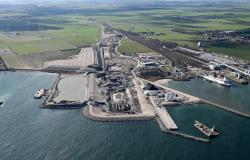Questions and answers
1. When will you vote in the 2024 European elections?
In Italy we will vote for the European elections on Saturday 8 June, from 3.00 pm to 11.00 pm, and on Sunday 9 June from 7.00 am to 11.00 pm. The counting for the election of the European parliamentarians due to Italy will begin as soon as the voting operations are concluded.
2. What are the European elections?
With the European elections, Italian citizens will renew their 76 representatives in the European Parliament. A total of 720 members will sit in the new Parliament, 15 more than in the outgoing mandate: in all EU states the election, which takes place every five years, must be set for the same period, between a Thursday and the following Sunday. Parliament shares legislative power with the Council of the European Union (Member States): the newly elected members will therefore deal with the rules that regulate the lives of Union citizens in important and strategic sectors such as the economy, environment and security. Furthermore, they will carry out the control function over the other institutions of the Union. And they will have, always together with the Council, power over the budget. European parliamentarians can approve or reject the appointment of the president of the European Commission and the commissioners.
3. Who can run for the European elections?
Italian citizens, holders of the right to actively vote, who have reached the age of 25 or citizens of other EU countries resident in Italy registered in special added lists can be candidates in the European elections. Italian law provides that anyone who has been definitively sentenced to a sentence of more than 2 years for non-negligent crimes in certain categories, ranging from criminal conspiracy, cannot be a candidate for the European Parliament, such as for the Chamber or the Senate , to corruption, extortion and embezzlement. The electoral system is proportional throughout the Old Continent. Italy has preferential voting (up to three, with different genders) and a threshold of 4%: you can only be elected if the list exceeds this threshold. After the allocation of seats to each list, the candidates who received the most preferences on those lists will be elected.
4. How often do you vote in the European elections?
The citizens of the European Union elect their representatives to the European Parliament every five years. The last election took place in May 2019.
5. Who can vote in the European elections?
In our country, adults who have reached the age of 18 by the day set for the elections, with Italian or European Union citizenship (with residence in Italy) are called to vote. Italian citizens residing in the EU and registered with the Aire (Register of Italians residing abroad) can vote at the polling stations set up in embassies and consulates, if they do not exercise the right to vote locally for candidates for the EU Parliament of their country of residence. Off-campus students who registered to vote by May 5 can also vote. According to the most updated estimates from Eurostat, in the 27 EU member states there are around 359 million eligible people (down compared to 2019 due to the exit of Great Britain).
6. Who won the European elections in 2019?
The European People’s Party (EPP) was the most voted and won 182 seats (24%), while the Progressive Alliance of Socialists and Democrats obtained 154 (21%). The others: Renew Europe (108 seats), Verdi-Ale (74), Identity and democracy (73), European conservatives and reformists (62), European united left (41). There were 57 non-members of groups. In Italy, the most voted party was the League (34.3%, 28 seats in the Identity and Democracy group), followed by the Democratic Party (22.7%, 19 seats in the PSE) and from the 5 Star Movement (17.1%, 14 seats), Forza Italia (8.8%, 7 seats in the EPP), Fratelli d’Italia (6.4%, 5 seats in the European Conservatives and Reformists group). All numbers refer to the composition (exit from the 2019 polls) of 751 members of the European Parliament, subsequently reduced to 705 due to the exit of Great Britain.





